The views expressed in our content reflect individual perspectives and do not represent the authoritative views of the Baha'i Faith.
“We’re all familiar with the tradition of racism in America,” says Dr. William H. “Smitty” Smith, the founding executive director of the National Center for Race Amity. But “there has always, without exception in our history, been a moral counterweight for racism,” he says, “even in the darkest hour of oppression.”
At a time when many people feel hopeless about our current racial climate in the United States, Smitty and fellow Baha’i Craig Rothman, the director of Baha’i Media Services, say there’s a need for stories about efforts to bring about race unity. To help us channel our pain into action, we need to know about the interracial collaborations that worked towards achieving equity and justice for all.
Learning these stories “is empowering to both European and non-European Americans, and enlarges the critical mass of concerned people from all racial and cultural backgrounds who can make race amity and equity a priority in their lives,” wrote Craig.
“We are ignorant as a nation of these stories,” Smitty says “and they are so important to who we are as a nation. It talks about the ‘other’ in us — the better in us.”
Indeed, Shoghi Effendi, the Guardian of the Baha’i Faith, wrote, “A long and thorny road, beset with pitfalls, still remains untraveled” in the path towards race unity and justice, but it is not a road that any one group is meant to travel alone. In 1938, he told the Baha’i community that everyone should “lend their assistance, each according to his or her capacity, experience, and opportunities,” to this common task of racial healing in America.
That’s why together the two longtime friends produced the 2018 documentary, “An American Story: Race Amity and The Other Tradition.” They say the story of Harriet Tubman, Thomas Garrett, and William Still is one that especially resonates with them right now.
Harriet Tubman, Thomas Garrett, and William Still
Shoghi Effendi wrote that everyone must have “an interracial fellowship completely purged from the curse of racial prejudice which stigmatizes the vast majority of its people” in order to “assail the long-standing evils that have entrenched themselves in the life of their nation.” The interracial friendship and collaboration between Harriet Tubman, Thomas Garrett, and William Still is one of Smitty’s favorites because they worked together to end the “long-standing evil” of slavery in this country.
We often learn about how the Underground Railroad was a Black and white network of abolitionists who helped Black people, who had escaped from slavery, travel North to freedom. After Harriet Tubman escaped from slavery, she famously kept traveling the dangerous and difficult route back to the South to free many hundreds of enslaved people and families. But the story of William Still is not often told.
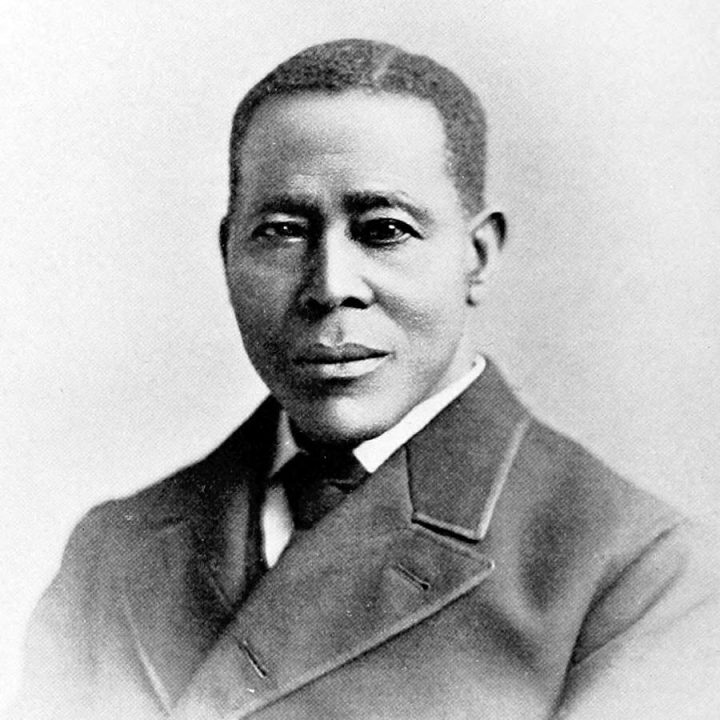
Still was another Black leader who provided support to these formerly enslaved individuals who arrived to Philadelphia and helped them adjust to their new lives of freedom by aiding them with food, clothing, funds, and references for employment. He was also a historian who documented the events and details of how the newly freed people escaped slavery in his book, “The Underground Railroad,” which was published in 1886.
Lesser known is the role of Thomas Garrett, a white man who grew up in an abolitionist family. One of the experiences that inspired him to become a leader in the movement happened when he was a young man. Slave catchers kidnapped a close friend of his and planned to take her to the South, even though she was a free Black person. Garrett caught up with her abductors by tracking their wagon’s marks in the snow and released his friend.
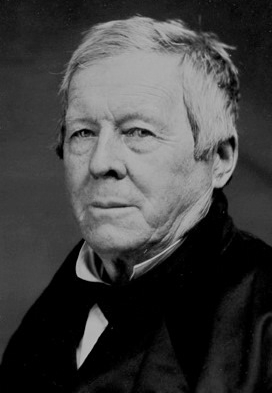
Garrett, Tubman, and Still each believed that their work to end slavery was their personal calling from God. Garrett greatly admired and cared about Tubman and Still, and offered his home as a station on Tubman’s route towards the North. In a letter to Still, Garrett wrote:
I write to let thee know that Harriet Tubman is again in these parts. She arrived last evening from one of her trips of mercy to God’s poor, bringing two men with her as far as New Castle. I agreed to pay a man last evening to pilot them on their way to Chester county; the wife of one of the men, with two or was left some thirty miles below, and I gave Harriet ten dollars to hire a man with carriage, to take them to Chester county.
She said a man had offered for that sum to bring them on. I shall be very uneasy about them, till I hear they are safe. There is now much more risk on the road till they arrive here, than there has been for several months past, as we find that some poor worthless wretches are constantly on the lookout on two roads, that they can-not well avoid more especially with carriage, yet, as it is Harriet who seems to have a special angel to guard her on her journey of mercy, I have hope.
One thing that Garrett was especially in awe of about Tubman was her intuition and connection to God. Abdu’l-Baha, the son of Baha’u’llah, the prophet and founder of the Baha’i Faith and the authorized interpreter of the Baha’i writings, said, “Only a few have this gift [of intuition]. It is like the tinkling of bells, a sixth sense, like the voice of God speaking. The more one follows intuition, the more it increases.”
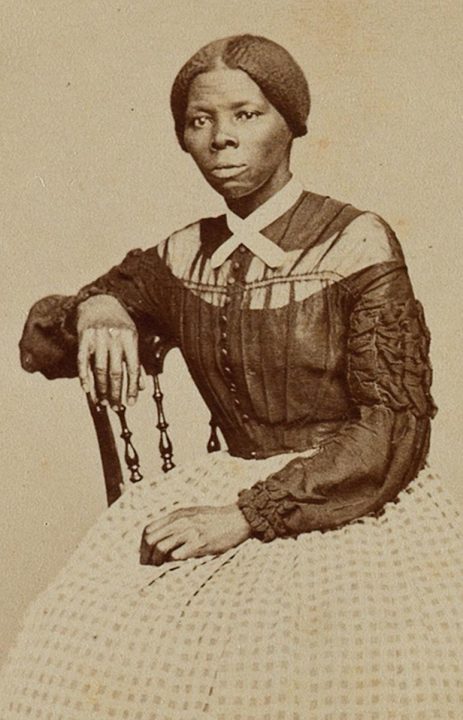
In a letter written to Tubman’s biographer, Sarah Bradford, Garrett wrote:
I have never met with any person, of any color, who has more confidence in the voice of God, as spoken direct to her soul. She has frequently told me that she talked with God, and that he talked with her everyday of her life, and she has declared to me that she felt no more fear of being arrested by her former master or any other person…
Garrett described Tubman as a noble, remarkable, shrewd, and courageous woman. He constantly sheltered the caravans that Tubman, and the escaped enslaved individuals she guided, would hide in on their journey, and aided about 2,700 runaways in their journey towards the North.
James McGowan, the author of the book “Station Master on the Underground Railroad: The Life and Letters of Thomas Garrett,” wrote:
it may be argued that their differences complimented each other. Garrett’s outspoken manner, coupled with his feeling of invulnerability, seems to have kept kidnappers and slave catchers away. Harriett on the other hand, though necessarily reticent and secretive, achieved the same results. Runaways whom she guided to freedom felt safe with her. They called her “Moses,” believing that she would eventually lead them to freedom.
We have to remember that “history is important only if it has an effect on what we’re doing in our lives today,” says Craig. We all know that “racial conflict is truly real,” he says. And as we read these stories, we should ask ourselves a key question: How are we responding to this issue today?


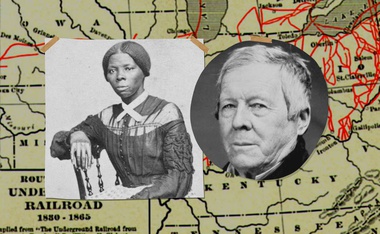



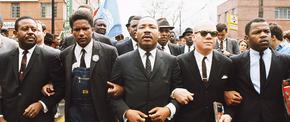
![[God] hath made woman and man to abide with each other in the closest companionship, and to be even as a single soul. They are two helpmates, two intimate friends, who should be concerned about the welfare of each other. If they live thus, they will pass through this world with perfect contentment, bliss, and peace of heart, and become the object of divine grace and favour in the Kingdom of heaven. But if they do other than this, they will live out their lives in great bitterness, longing at every moment for death, and will be shamefaced in the heavenly realm. Strive, then, to abide, heart and soul, with each other as two doves in the nest, for this is to be blessed in both worlds. – #AbdulBaha #Love #Marriage #Companionship #BahaiFaith
(Selections from the Writings of ‘Abdu’l-Bahá, paragraphs 92.1–92.3)](https://media.bahaiteachings.org/sb-instagram-feed-images/487782836_18497319871023335_4819806972653811469_n__v284x284__.jpeg)

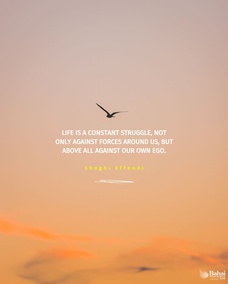

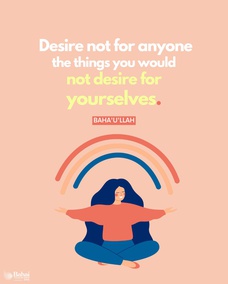

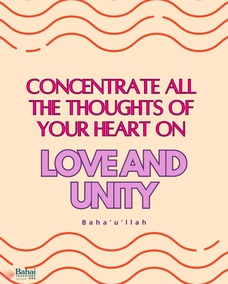
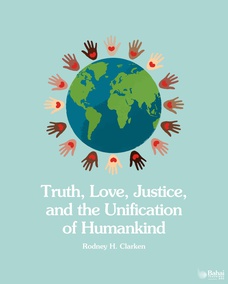

Comments
Sign in or create an account
Continue with Googleor